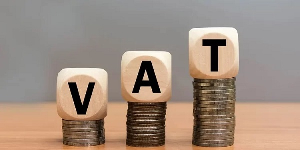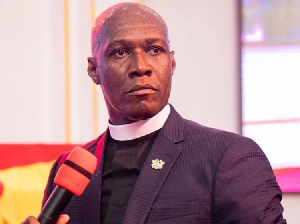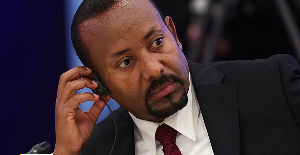Opinions of Monday, 4 October 2004
Columnist: Adomako, Appiah Kusi
Funding Of Political Parties: The Case For (Part II)
In my last feature I presented on the above topic, I stated my against funding of political parties. Today I want to present the other side. As usual, there are fewer arguments for the state funding of political parties than there are against it. Political parties are the life line to our democratic dispensation
The main argument for state funding is that political parties are an integral part of the democratic process and governance and as such, a state will have to financially support it if it is to see a productive democracy. This arguments goes that since citizens have voted for a democracy (normally in a referendum, as Ghana did in 1991), it is due responsibility that they fund parties. In essence, the tax payer should pay for the democracy he enjoys, just as he would pay for any social infrastructure and service.
It must be noted that the various bodies and agencies that are expected to uphold the democratic name of the state are state funded: The Executive, The Judiciary, The Legislative, The Electoral Commission. Why then do we leave out the political parties to fend for themselves, especially in a society like ours where the parties can simply not rely on the donations and contributions from its members, who already cannot make ends meet.
Another argument is that since these parties are there to offer alternatives to what the incumbent offers, there needs to be a fair chance for the parties not in power to contest with the incumbent.
The last reason given is that it helps curb corruption, especially as campaign contributors normally will come back to recoup their ?investment?. This normally breeds nepotism and corruption and the awarding of contracts to undeserved bidders, simply because there was a campaign contribution along the line.
The other issue we may have to look at is the issue of whether the state should fund parliamentary candidates or presidential candidates or both or simply should fund the parties and leave them to do what they want with the money? In that case, then what happens to an independent candidate who is not a member of a party? Such people also contribute to the democratic process.
SOURCES OF FINANCES TO POLITICAL PARTIES
There are many ways at which political parties can use to source funds to run its activities. These methods have been used by parties since independent.
1. Donations from funding members
2. Payment of membership dues.
3. Through fund raising activities
4. Through the sales of parties items like T-shirts, handkerchiefs and other party insignia.
MECHANISMS FOR IMPROVED FINANCIAL ACCOUNTABILITY ON THE PART OF THE POLITICAL PARTIES
To best demand accountability from political parties, they simply should be monitored like business enterprises, and their activities scrutinized by the agency that supplies their funding, or by the state Accountant General or the Electoral Commission. To avoid the influence of the incumbent government, a comprehensive draft legislative instrument on Political Parties Spending Bill should as matter of urgency be considered. This bill should not come from the Attorney General?s Office but rather from the cross section of all players in the democratization process-the inter -party level, civil society and parliament.
The only benefit they should get should be that their income should be tax-exempt, but apart from that, they ought to be scrutinized to the letter. So far, political parties have done a poor job in rendering accounts to the state and the electorate, but they all seem not to be feeling accountable. The monitoring should not be done by parliament, since there is the possibility that there will always be a majority in parliament that will stifle any inquiry and monitoring of their party, but witch-hunt the other party (ies).
RECOMMENDATIONS TO THE GOVERNMENT ON IMPROVED WAYS OF FINANCING ELECTIONS IN GHANA
Government should present before parliament a bill for consideration called Political Party Spending Bill. The bill should among other things-
1. Set out clearly how the funds provided by the state be used.
2. A party will loose its chances of getting funds if it engages in the vote buying.
3. A ceiling should be set concerning how much a party can spend in an election.
4. Funds should be released to all parties and the Electoral Commission on time.
5. Funds should be allocated according to participation- numbers of MP and votes cast in the previous elections. That is no new party can source funding from the state. Unless you contest first general elections and based from your performance in that election funds could be allotted to the party. This will prevent the tendency of mushroom parties springing out of no where.
6. Parties will have to present an annual audited account to be considered for future funding. And there should be a penalty on late submission of accounts.
7. Since media and publicity cost form huge part of parties expenditure, state media houses should give subsidized charges to parties during general elections.

Views expressed by the author(s) do not necessarily reflect those of GhanaHomePage.














